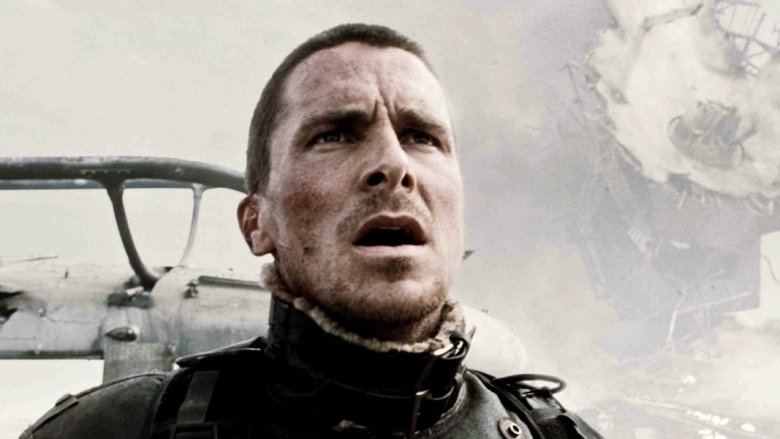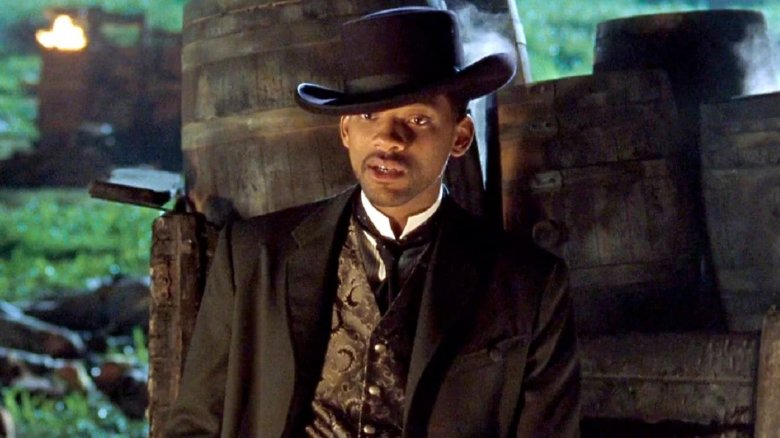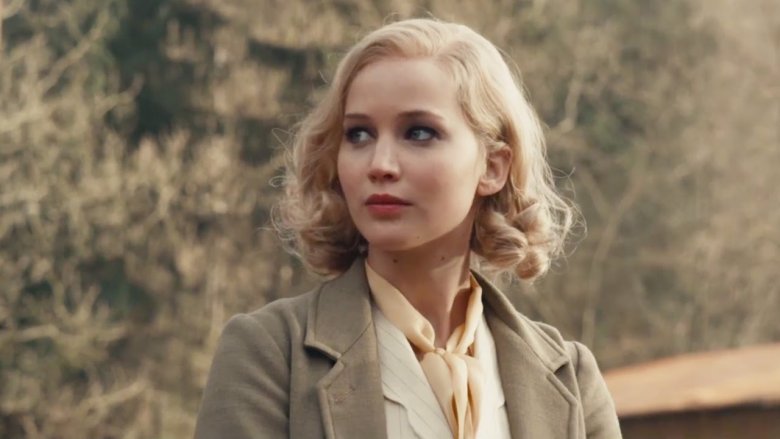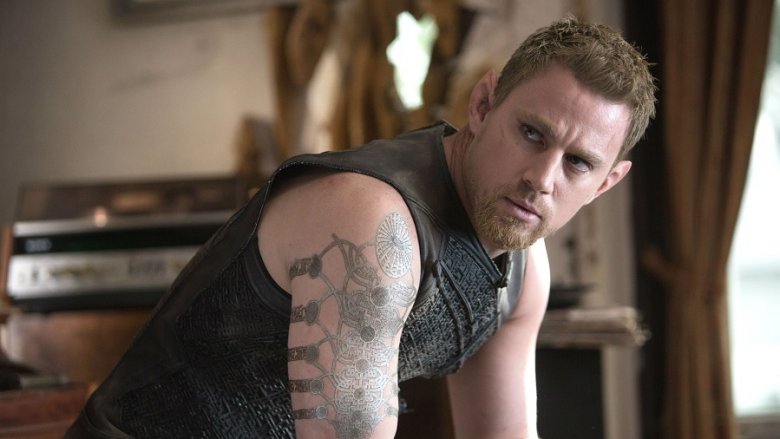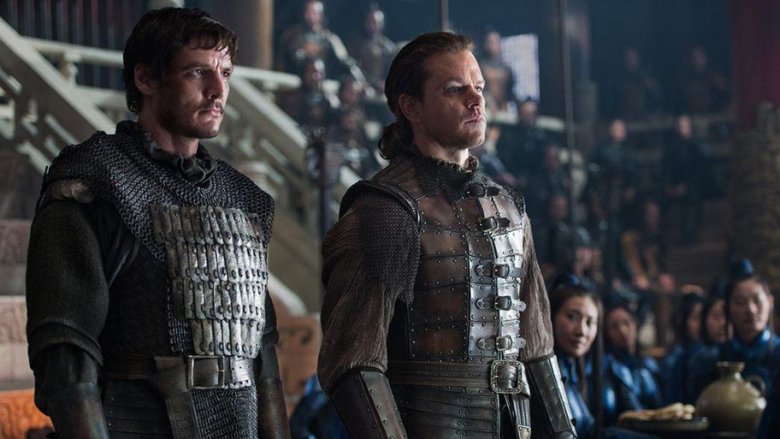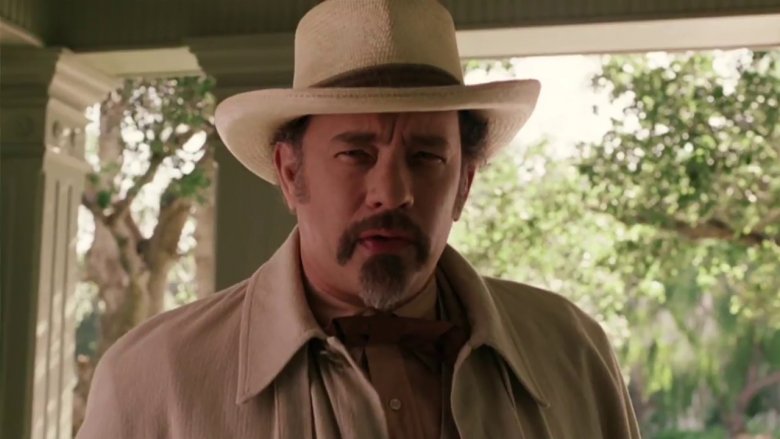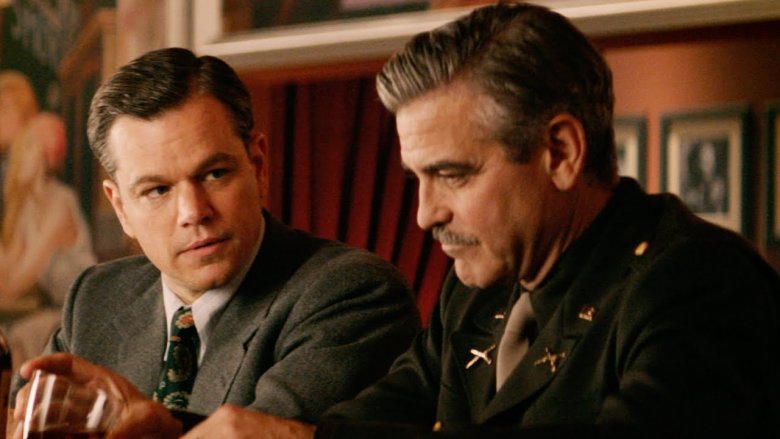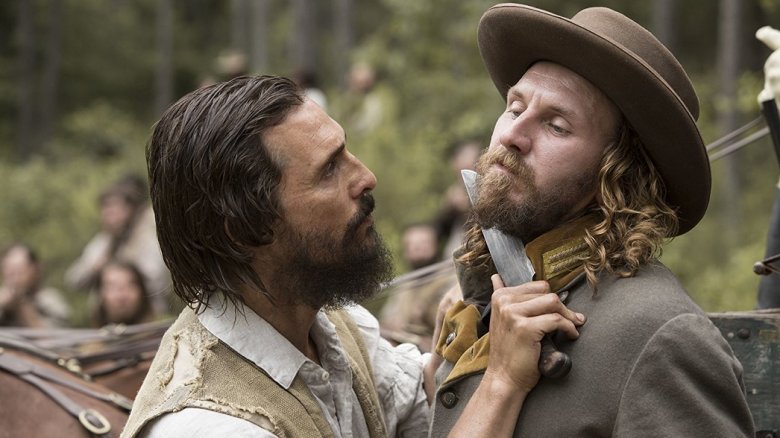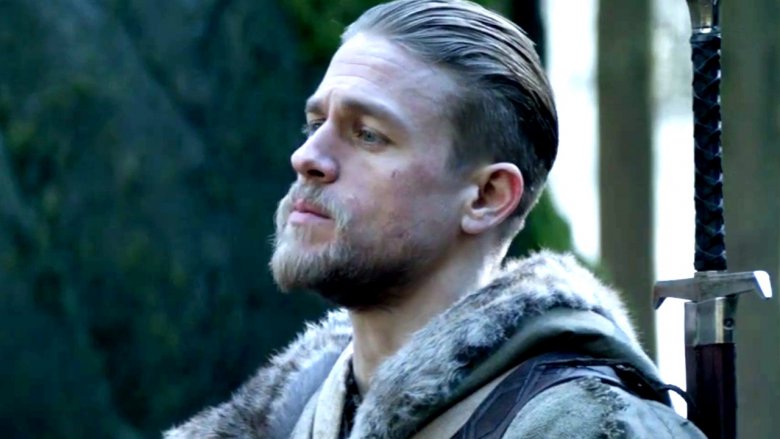Awful Films That Ended An Actor's Hot Streak
The advent of smartphones and spread of social media has turned every fan with two thumbs and a data plan into a film critic, but negative word of mouth is just one of the reasons that movie studios currently find themselves under more pressure to perform than ever before. The benchmark for what is considered a box office success is higher today, so putting a string of hit movies together is no mean feat for studios — and the same goes for actors.
An actor lives and dies by their decisions. Picking your roles wisely and building up a head of steam is the best way to attain genuine A-list status, though once you make it to the top you still have a fight on your hands if you want to stay there. In Hollywood, you're only ever as good as your last film, and even if you've been churning out hits for years on end, all it takes is one awful movie to take you down a peg. Here's a look at some awful films that put an end to an actor's hot streak.
Terminator Salvation (Christian Bale)
Christian Bale's career took off in earnest after he played serial killer Patrick Bateman in graphic psychological thriller American Psycho, and from there he went on a hot streak that made him one of the most sought after men in Tinseltown. There were a few early hiccups (both Reign of Fire and Equilibrium lost money in 2002), but before long, Bale was fronting hit after hit.
He became known for his intense method acting, shedding insane amounts of weight for roles only to put it back on and then some in next to no time at all. Between 2004 and 2008, he won acclaim for The Machinist, Batman Begins, Rescue Dawn, 3:10 to Yuma, and The Dark Knight, but things went south for Bale soon after his second outing as Christopher Nolan's Batman. 2009's Terminator Salvation wasn't the return to glory that fans of the franchise were expecting. Bale felt the wrath of the critics for the first time in a long time, and the bad reception was made all the worse by the hugely disappointing box office returns.
His public image also suffered after a recording of Bale launching into an expletive-laden rant at a crew member leaked online. The embarrassed A-lister apologized for his behavior during a call to radio station KROQ (via Los Angeles Times), admitting that he was out of order. "I acted like a punk," he said. "There is nobody who heard the tape who is hit harder than me."
Wild Wild West (Will Smith)
By the time Wild Wild West came out in 1999, Will Smith was at the top of his game. The former Fresh Prince of Bel-Air star managed to transform himself from a sitcom actor into a genuine action star in 1996-'97, with consecutive appearances in Independence Day and Men In Black, which earned $300 and $250 million respectively. The following year he returned in Tony Scott's conspiracy thriller Enemy of the State, which again sat well with critics and brought in a nine-figure haul at the box office.
At this stage Smith could seemingly do no wrong, but he soon found out that he was far from infallible, neither with the critics nor with paying customers. Wild Wild West actually made $113 million at the domestic box office, but with a production budget that exceeded $170 million, even that amount of money was a disappointment. The severely misguided steampunk western remains one of the biggest black spots on Smith's resume, and he's been open about his embarrassment on occasion.
"I had so much success that I started to taste global blood and my focus shifted from my artistry to winning," he said during a 2016 Cannes Lions session (via The Hollywood Reporter). "I wanted to win and be the biggest movie star, and what happened was there was a lag. Around Wild Wild West time, I found myself promoting something because I wanted to win versus promoting something because I believed in it."
Serena (Jennifer Lawrence)
When Jennifer Lawrence stumbled up to the podium to collect her Best Actress Oscar for 2012's Silver Linings Playbook, she was already several films into a hot streak. She'd turned in a "starmaking performance" in 2010's Winter's Bone and made her first appearances in the Hunger Games and X-Men franchises after that, which collectively brought in over half a billion dollars. Her triumph at the Academy Awards cemented her position as a star, and her stock continued to rise in the months that followed.
She got her third Oscar nomination for portraying the sassy Rosalyn Rosenfeld in David O. Russell's American Hustle in 2013 and continued to make the whole blockbuster thing look easy the following year with The Hunger Games: Mockingjay — Part 1. By the time Part 2 came out, the Girl on Fire had lost some spark, thanks to her first big post-Oscar letdown. Her streak ended in tame fashion in 2014 with the universally panned Serena, which — despite the star power of Lawrence and her co-star Bradley Cooper — failed to land a U.S. distributor and was dumped on VOD platforms.
The final Hunger Games film turned out to be the lowest-earning of the lot and Lawrence's pull has wavered ever since. While she got another nod from the Academy for 2015's Joy, reviews were lukewarm at best, and she's struggled to find a big hit since. Tentpole sci-fi Passengers was a huge letdown in 2016, and her 2018 spy thriller Red Sparrow didn't go down much better.
Jupiter Ascending (Channing Tatum)
The Wachowskis weren't exactly on a hot streak when their 2015 sci-fi epic Jupiter Ascending was released to generally terrible reviews, but male lead Channing Tatum had been. In the previous year the stacked actor took part in four critical smashes in a row: The Lego Movie, 22 Jump Street, The Book of Life, and Oscar nominee Foxcatcher. Jupiter Ascending brought that to a swift end when it returned $47 million domestically, despite costing $176 million to make.
Tatum threw some shade at the movie during a memorable 2015 Reddit AMA (via MTV). "Jupiter Ascending, what was that?" a fan asked the actor, who replied: "Great question. I have the same one to myself." It was a question that the Wachowskis likely faced from Warner Bros. execs, who were swallowing some huge losses. Jupiter Ascending was the third straight flop from the sibling directors, who had already cost the studio big time with 2012's Cloud Atlas and 2008's Speed Racer, an ill-conceived remake of a Japanese anime that set Warner Bros. back an estimated $114 million.
Luckily for Tatum, he was able to get right back on track and went on another streak of great form — only for the same thing to happen again. After adding another string of Certified Fresh movies to his resume (The Hateful Eight, Hail, Caesar!, The Lego Batman Movie and Lucky Logan), Tatum's renewed luck with the critics ran out with disappointing action sequel Kingsman: The Golden Circle (2017).
The Great Wall (Matt Damon)
In 2018, China's box office officially overtook America's, according to Variety. Studios have known this was coming for a while. Many attempted to take advantage of the Chinese market by altering their movies to cater to it, and some even sought co-Chinese productions. This was how Matt Damon's The Great Wall came to be, with Legendary teaming up with the China Film Group for what turned out to be an epic disappointment stateside — it only grossed $45 million.
Director Zhang Yimou (House of Flying Daggers) brought plenty of his famed visual flair to the movie, but it was widely trashed, both in the U.S. and in China. In fact, the film was received so poorly in China that the government apparently started censoring bad reviews, which were "vicious and irresponsible" according to the official newspaper of the Chinese Communist Party (via Independent).
The critical reaction in the States was free for all to see, and it wasn't good reading for Damon, who had been on a real hot streak with Interstellar and The Martian, as well as a producer credit on Manchester By The Sea. "What a bummer that all Chinese master Zhang Yimou and Hollywood star Matt Damon come up with is a B-level creature feature with delusions of grandeur," Rolling Stone said, and things haven't exactly been going great for Damon since. He saw out 2017 with a pair of bizarre comedies (George Clooney's Suburbicon and Alexander Payne's Downsizing), neither of which were particularly well-received.
The Ladykillers (Tom Hanks)
Not many actors can claim to have experienced a hot streak as long as the one Tom Hanks enjoyed for the better part of 15 years. From the early 1990s to the midpoint of the 2000s, Hanks was a guaranteed draw at the box office, with his movies rarely pulling in less than $100 million. In that space of time, he starred in such critically acclaimed hits as Philadelphia, Forrest Gump, Apollo 13, Saving Private Ryan, The Green Mile, and Cast Away (2000) — to name but a few — and that's without mentioning his role in shaping the future of feature-length animation as a part of Toy Story.
It had to happen sometime, but when Hanks' bubble did eventually burst, it was unexpected. Nobody saw his hot streak coming to an end with The Ladykillers. The idea of Hanks collaborating with the Coen brothers on this 2004 remake of a British classic seemed like a surefire recipe for success. That wasn't the case, however: The movie barely recouped its $35 million budget in the domestic box office and was panned by many of the industry's top critics.
"Most of this stuff isn't worthy of the Farrelly brothers, let alone the Coen brothers," veteran reviewer Richard Roeper said, and his longtime friend and collaborator Roger Ebert was equally unimpressed. "Not content to be funny, it wants to be FUNNY!" he added. "Have you ever noticed that the more a comedian wears funny hats, the less funny he is?"
The Monuments Men (George Clooney)
He's never been able to hit that $100 million mark quite as often as Tom Hanks, but George Clooney is also known to bring in the big bucks on occasion. He generated major bank fronting Steven Soderbergh's popular and highly profitable Ocean's movies, though not every high-grossing Clooney film has been that well received (see 1997's Batman and Robin, which somehow managed to make $238 million). In the late 2000s Clooney was undeniably A-list, but in 2014 his career (and confidence) took a severe nosedive.
Clooney co-wrote, produced, directed and starred in WWII caper The Monuments Men, a story about a rag-tag platoon sent into Nazi Germany to retrieve stolen works of art. Despite an all-star cast (Matt Damon, Bill Murray, and John Goodman offered support) the movie bombed in theaters and took a licking from the critics. Coming right off the back of his lead role in Oscar-winning sci-fi smash Gravity, it was a personal blow for Clooney, who emailed Sony execs with apologies as the bad reviews came rolling in.
"I fear I've let you all down," Clooney wrote in a message to then-Sony Pictures co-chair Amy Pascal (via Independent). "Not my intention. I apologize. I've just lost touch. Who knew? Sorry. I won't do it again." The extent of his devastation was laid bare after hackers attacked Sony and dumped sensitive emails chains online. He reportedly asked Pascal for "protection from all the reviews" and revealed he hadn't slept in 30 hours.
Free State of Jones (Matthew McConaughey)
Matthew McConaughey's career is a tale told in two acts. After years of depending on his looks and charm to pay the bills with rom-com after forgettable rom-com, he decided to start acting again, and Hollywood welcomed him back with open arms. Dubbed the "McConaissance" at the time, McConaughey's turnaround can be traced back to 2011, when his courtroom thriller The Lincoln Lawyer scored highly with critics. From there, he made a string of sensible choices that would propel him all the way to the Oscars.
2012's Magic Mike was an unexpected smash, but it was his pitch-perfect work in slow-burning indie hits Killer Joe and Mud that really got his head of steam going. In 2014 his remarkable comeback was capped with a Best Actor win for Dallas Buyers Club, and from there he strengthened his case for Hollywood's top dog with appearances in Martin Scorsese's The Wolf of Wall Street and Christopher Nolan's Interstellar. You can't keep making good choices forever, though, and McConaughey's next one wasn't exactly inspired.
Civil War drama Free State of Jones only managed to claw back half of its $50 million budget, and the majority of critics were unimpressed. The terms "whitesplaining" and "white savior" came up regularly in the reviews, and the bad press marked the beginning of the end of the McConaissance. The monumental failure of 2017's The Dark Tower has left McConaughey in need of another hit.
Charlie Hunnam (King Arthur: Legend of the Sword)
Charlie Hunnam's career started when a casting agent happened to spot him Christmas shopping while drunk in his home city of Newcastle upon Tyne, setting of cult British teen series Byker Grove. He only appeared briefly, but it was enough to catch the acting bug. In 2002 he starred as Nicholas Nickleby in a critically acclaimed adaptation of the classic Dickens novel and then showed his darker side in Green Street Hooligans, Children of Men, and hit FX series Sons of Anarchy, which made him a big enough name to be offered a lead role in a Hollywood blockbuster.
That blockbuster was Pacific Rim, a monster movie from Guillermo del Toro that didn't live up to expectations at the domestic box office but had a huge haul overseas and was reviewed positively by critics. Hunnam collaborated with del Toro on his next film Crimson Peak and followed that up with an assured performance as explorer Percy Fawcett in the lauded Lost City of Z, but his luck was about to run out.
With Hunnam as the face and his compatriot Guy Ritchie at the helm, King Arthur: Legend of the Sword was supposed to be the start of new franchise based on the legendary character, but those plans were hastily scrapped after the box office numbers spelled disaster. Warner Bros. signed off on a $175 million budget, which it didn't even manage to recoup internationally — never mind at home, where it made less than $40 million.
